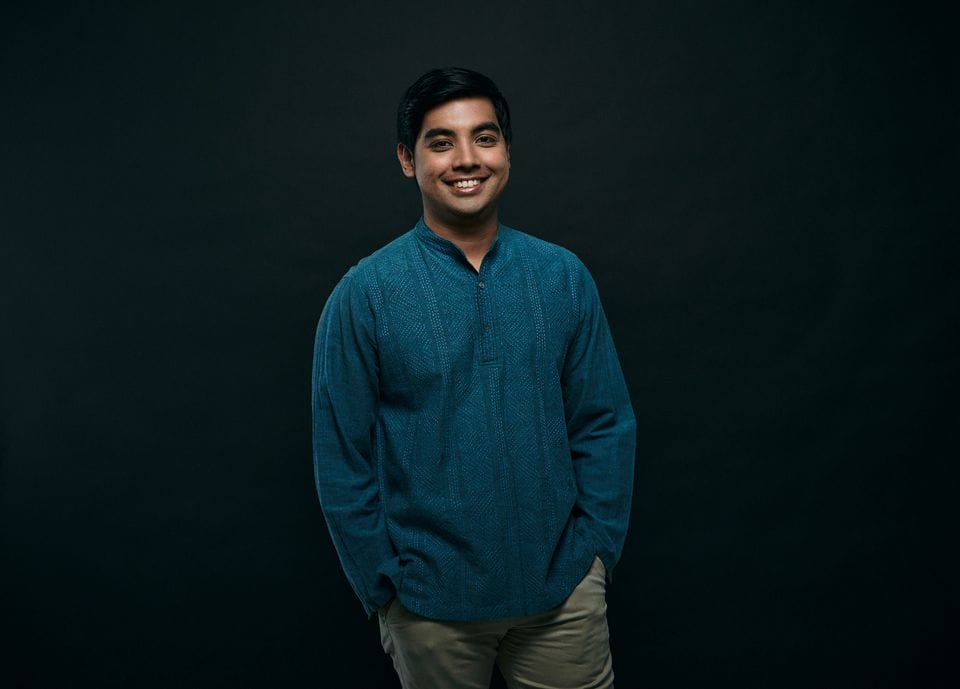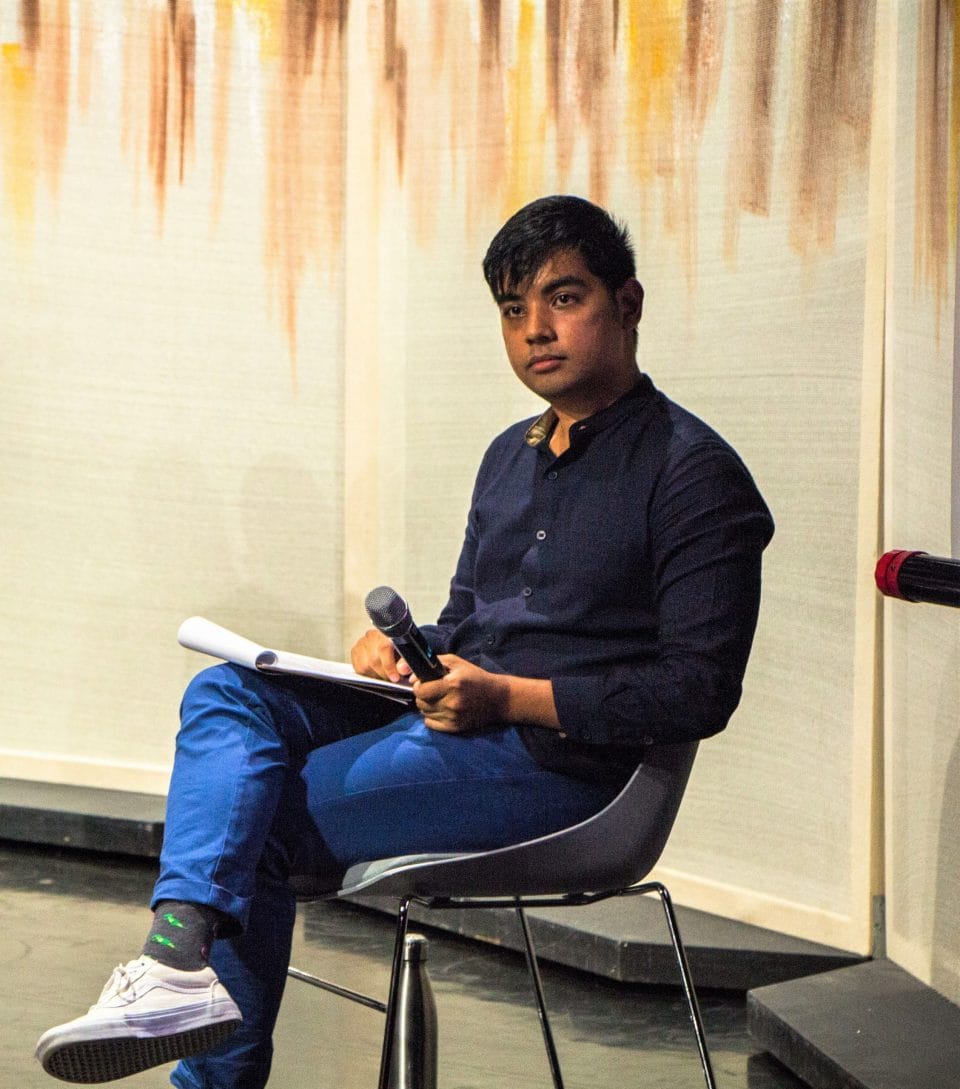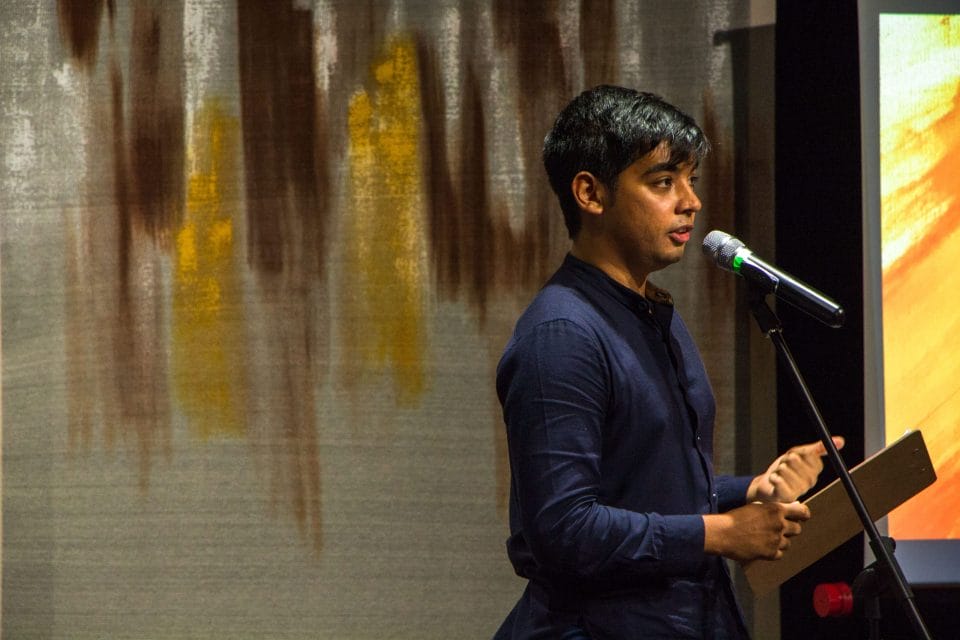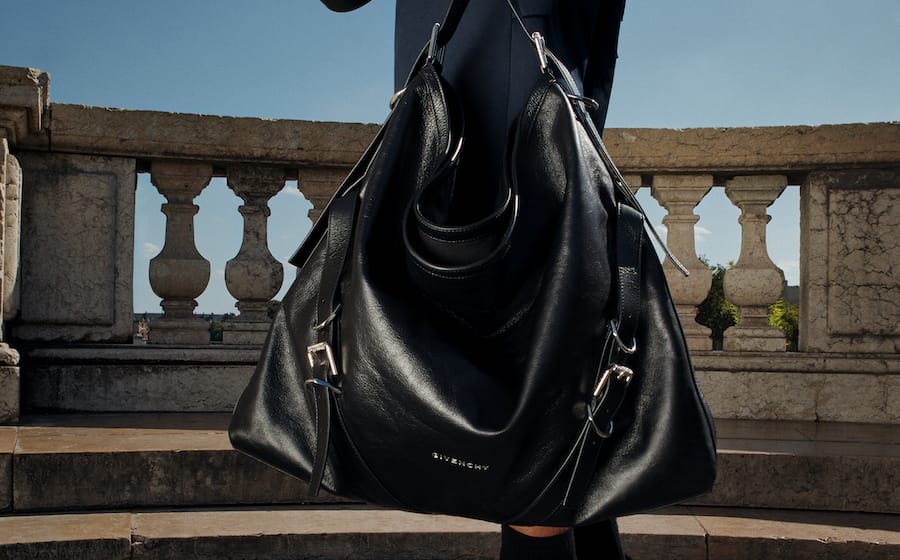 If you ever want to participate in the social discourse of a conservative society, always look towards the theatre. More than an outlet of creative expression, live theatre is a mirror with which society can use to examine itself with, and then attempt to seek solutions as a collective. It is a space where real time stops for a while; the floor opens for all to exchange points of view, explore the self, ignite change, all while still voicing everything out with the safe filters of humour, wit, sarcasm, or even straight up banter.
If you ever want to participate in the social discourse of a conservative society, always look towards the theatre. More than an outlet of creative expression, live theatre is a mirror with which society can use to examine itself with, and then attempt to seek solutions as a collective. It is a space where real time stops for a while; the floor opens for all to exchange points of view, explore the self, ignite change, all while still voicing everything out with the safe filters of humour, wit, sarcasm, or even straight up banter.
Photo by Joel Lim at Calibre Pictures. Image courtesy of Checkpoint Theatre.
This is why works like Checkpoint Theatre’s Brown Boys Don’t Tell Jokes matter, and are important for Singapore now. With a bigger part of our country’s population well-primed to celebrate the merits of diversity, plays like this need to happen to ensure there is breadth in experience, albeit for a short evening. In this exclusive interview, playwright Myle Yan Tay takes us behind the creative process behind this production ahead of the premiere, his journey into the performing and literary arts, and navigating the curiously universal nature of theatre, race, masculinity and friendships.
Hi Yan! Could you describe what you do for a living in 10 or less words?
I write plays, novels, comic books, essays, and reviews.
What first led or drew you to theatre?
My mother used to bring me to watch plays growing up, but Checkpoint Theatre’s 2015 production of Shiv Tandan’s The Good, the Bad and the Sholay, helped me understand the work I wanted to make: art that is funny, poignant, energetic, specific. Theatre connects with audiences, binds people through an emotional experience in that physical space. It’s unlike anything else, and perhaps the most inherently joyful thing about the medium. It can challenge people in ways that other media can’t, push boundaries, force people to contend with things they’ve been avoiding. I write in several different media but theatre is the most immediate of the bunch.
 Image courtesy of Checkpoint Theatre.
Image courtesy of Checkpoint Theatre.
Then what made you stay?
Quite frankly, it became the way I engaged with myself. In JC, I would talk to myself often, scripting these little dialogues to figure out problems. Eventually, those became stories, none of them very good because of course, I was just figuring it out. But that mode of dialogue is something I held onto quite dearly.
It’s something that was encouraged by the robust creative writing programme at Yale-NUS College, which pushed me to keep seeking improvement and create work continuously. It was a space where it was safe to fail, to experiment with my artistic practice as a writer, director, and performer.
And of course, I was still failing. But those failures helped me improve and understand what I wanted from my work. And importantly, it helped me see that art, especially theatre, is about so much more than its end product. It’s about the people you meet and the process of getting there. It’s that sense of collaboration that has kept me in theatre. At its core, I find it to be a very democratic process. The playwright gets things started, then the director takes over, and the actors, the designers, the stage managers keep that process moving. Everyone is building something together, and that’s a feeling you can’t get in other media.
As someone who has taken on the responsibilities of both backstage and on stage, which do you enjoy more? Why?
At this stage, I prefer being backstage. Because when you’re onstage, you’re developing that connection with the audience which is truly special. But you don’t get to witness its effect. As a playwright in the audience, I get to see both the show I wrote, transformed by its cast and crew, and also the secondary show: the audience. You get to feel them respond, react, laugh, go silent, and see how the work lives through them.
For Brown Boys Don’t Tell Jokes, you mentioned in the press release that it was modelled off of you wondering about the future of your own friendships — has writing this play and seeing it come to life given you any answers to this question?
It’s definitely made me think about the idea of growth. Growth is a major theme of the play, which I was intentionally exploring when writing it. But seeing the actors bring it to life and make those friendships tangible puts it even more in focus. These are five men who have grown together and grown apart; and now that they’re together again, they’re regressing to those older forms of themselves.
So what I’ve been thinking about is: how can friendship allow transformation? And on the other hand, how does it encourage stagnation?
Did you find recontextualising something so personal into something made for a larger audience challenging? If yes, where? Why or why not?
I don’t want people to think that this is simply a play based on me or my friends’ life. None of these characters are based on my friends. The play is pulled from the idea of friendship, not my friends in particular. And I think that’s important. That act of creation is vital for the writer when creating fictional work. Because that’s when you get to make the specifics, craft the characters’ lives and their details.
The most powerful works for me are those which are so specific that they become universal. It’s not about creating something vague that’s going to work as a catch-all. Friendship is something that we all relate to, but setting the play with very specific dynamics, such as looking at the friendship between Singapore brown males, allows you to dive into the particularity of those experiences and expand on the often overlooked or unconsidered challenges that everyone faces, regardless whether you fit into the demographic of Singapore brown male.
View this post on Instagram
Have you learned anything new about yourself from the production of this play?
I think I’ve learned how often I use people’s names. That was something I realised when the actors first read the script. I heard them and I was like, “why does everyone say each other’s names so frequently?” And I realised I do that because when I’m writing it in my head, I’m thinking of this ball being passed around. And a character says another character’s name to pass them the ball, so that they can catch it and say their line. Now I know what to look at when revising my writing.
On top of friendship, this play also touches on topics like race and masculinity. What is one message you hope for audiences to take away after watching your play?
That’s a tough one. Something I’ve been trying to figure out with my own writing and my relationship with my work is whether I need to teach people anything, and what my responsibility is as an artist to audiences, but also to myself. If I’m trying to teach something, that means I already know it or think that’s true. So how is it exciting for me to write that, if my only goal is conversion?
So with this play, and with a lot of my work, I try to plant the seed for someone to ask themselves something. I think every individual has the power to make up their own mind on things and I think I can lead them to try and guide things and provide questions that may excite them and may challenge their world views. What answer they come to is entirely up to them.
In your opinion, do you think the safe space that the local theatrical landscape has created to openly discuss societal topics like race and masculinity has become more accessible to the wider population over the recent years? How are things now compared to when you first stepped into the industry, and how do you think it will look like in the next 5 years?
I still consider myself to be stepping into the industry! I think that’s how I’m going to approach it for the rest of my life too. Personally, I want to always be growing and thinking that there’s something to learn. Once I feel like I’ve settled into the industry, that’s when the blinders will start to come into play.
But to answer the question more directly, I think theatre has always been this rarely seen provocative space in Singapore. And yet, it’s one of the few places where sensitive topics like race, sexuality, and censorship can be discussed. And seeing plays like Alfian Sa’at’s Dreamplay: Asian Boys Vol. 1 was huge for me when I saw it back in 2013. It was my first time seeing topics like queerness be discussed in such a public forum. It opened my eyes, showing me that the theatre scene is not bound by the same unwritten rules as those of Singaporean society. I hope we keep that going, and keep expanding the range of what theatre explores as our society evolves.
 Image courtesy of Checkpoint Theatre.
Image courtesy of Checkpoint Theatre.
Lastly, what’s next for you this year? Any new projects we can look forward to?
I’m very excited to be publishing my debut novel catskull with Ethos Books in June this year. It’s a neo-noir thriller and coming-of-age mystery novel that I’m really proud of, and I’m really curious to see how people respond to it.
You can also check out my comic books, Putu Piring and the Through the Longkang trilogy, published by Checkpoint Theatre
I’ve also been working hard on a podcast, called comic sans with Andas Productions, that’s merging a lot of my loves (comic books, essays, reviews, talking a lot) into a single place. That’s going to be coming out soon too.
Last thing is, I’m always writing about movies. I review Oscar nominees, MCU movies, whatever I can get my hands on, at myleyantay.com.
View this post on Instagram
Get your tickets for Brown Boys Don’t Tell Jokes here. Then, once you’re done with this story, click here to catch up with our March 2023 issue.








